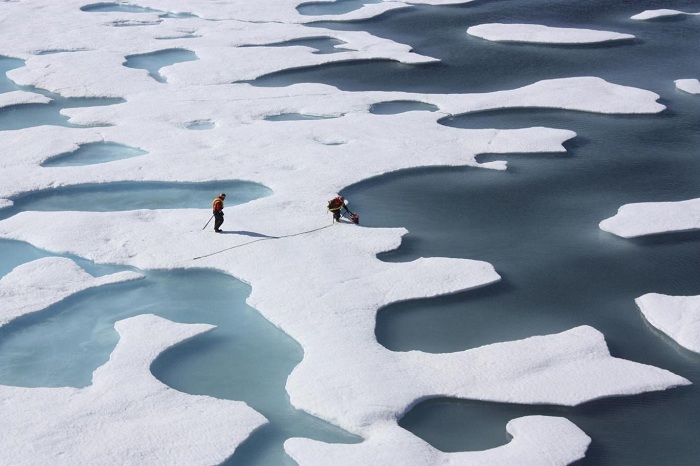In the Arctic, they include growing vegetation on the tundra that stops reflective snow and ice and so absorbs more heat, and the release of methane from the Arctic as it warms. The report, compiled by 11 different organisations, includes a range of different calamitous events that are likely to be produced by the warming poles.
The findings come just as climate scientists have warned that sea ice in the Arctic appears to be melting far more quickly than expected as the result of freakishly high temperatures.
Heat-packed oceans and northward winds have been reinforced by a “vicious circle” of climate change, scientists say.
Air over the Polar ice cap has been 9-12 degrees Celsius above average over the last four weeks, according to the Danish Meteorological Institute. Through last week, temperatures reached the melting point, putting them far above the expected temperature and serving as a dangerous signal for the sea ice there.
The temperature is “by far the highest recorded” in the era of satellite data, DMI researcher Martin Stendel told the AFP. "What we are observing is very unusual."
At this time of year, the Arctic ocean would be expected to start freezing up into sea ice again – usually a rapid process that sees thousands of square kilometres of exposed ocean ice over. But that it isn’t happening.
"Not only was the ice not growing as it would normally, there was further melting due to warm air coming in," he told the news agency.
That effect is being caused by a number of factors – not only climate change, but also temporary weather phenomena like the lingering effects of last year’s El Nino. But those temporary things are being reinforced by climate change, which is the ultimate driver of the melting sea ice, scientists said.
More about:
















































